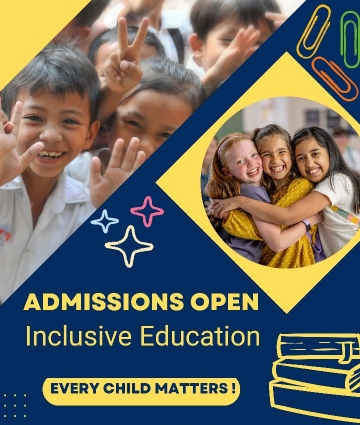Inclusive education at Progressive ensures that we are supportive and an engaging place for all school community members. We build communities that value and celebrate diversity. Directed by respectful relationships between learners and school community members and supported by collaborative relationships with parents and communities through communication and partnerships.
At Progressive, we are committed to an education system built on this approach to accepting responsibility for all children to a welcoming and respectful environment. Research shows that a sense of belonging is essential for children’s wellbeing. The school recognizes the importance of social acceptance and high self-esteem as prerequisites to real learning in the school setting. It actively seeks to create an environment which facilitates the learning process for everyone and to remove the barriers that can hinder participation or exclude individuals from daily routines.
The following features are essential for achieving Progressive Public School's vision for an inclusive education system.
- Supporting diversity and differences – Create and maintain welcoming, caring, respectful and safe learning environments for a sense of belonging for all learners and their families.
- Personalized Differentiation Strategies- At Progressive Public School, differentiation goes beyond recognizing diverse needs; it involves employing personalized strategies tailored to each student's learning style, strengths, and areas requiring support. Our educators adeptly craft individualized learning experiences, leveraging varied instructional approaches, resources, and assessments to accommodate the specific requirements of every learner. Through these personalized differentiation strategies, we ensure that each student receives targeted support, fostering a more inclusive and effective learning environment for all.
- High expectations for all learners – Developing a culture of high expectations begins with a relevant curriculum leading to meaningful and real learning experiences. The school and families act on the idea that, with the right support, every child can learn and be successful.
- Understanding learners’ strengths and needs – Meaningful data is gathered and shared at all levels of the system—by teachers, families, and management to understand and respond to the strengths and needs of individual learners.
- Minimizing barriers within learning environments – All education partners’ work together to identify and reduce barriers within the curriculum, the school environment and teaching methodologies that are not conducive to the students’ ability to be successful learners and to participate fully in the school community.
- Capacity building – School Management, education professionals, families and community partners have ongoing opportunities, relationships and resources that develop, strengthen and renew their understanding, skills and abilities to create flexible and responsive learning environments.
- Sharing responsibility – All stakeholders including school staff, families, service providers, staff training programs, assessing/certifying authorities and government departments are committed to collaboration to ensure success for all learners.

